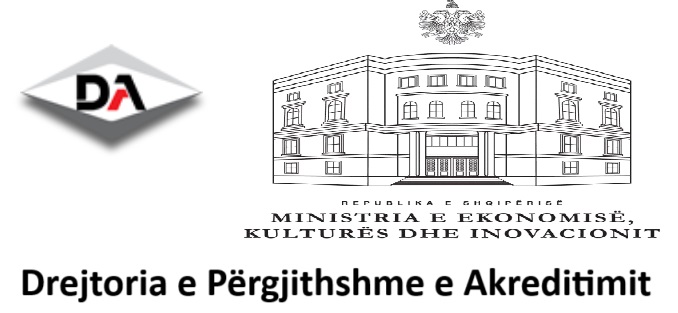What is Accreditation
| Personal | Technical Infrastructure | Organizational Structure |
| Technical competence | Criteria for decision making | Independence |
| Technical experience in specific areas | Equipment | Impartiality |
| Continuous Qualification | Procedures | Quality Management |
Accreditation Benefits
Competence, Independence, International Recognition, Increase of Professionalism
Guarantor of your competence to clients
Increase the chance for improvement
Provides independence, integrity and technical competence
The use of accreditation also serves as an accreditation mechanism
Increases reputation and professionalism
Spend costs through improving the technical and management system efficiently and effectively.
– For regulators
– technical competence;
– independence, impartiality and integrity;
– risk management;
– proper use of equipment and human resources;
– a mechanism for continuous improvement of the quality of products and services;
– For the CAB – When a CAB is accredited it can benefit:
– Better visibility in the market;
– EA and members of the National Accreditation Bodies publish the database of accredited organizations;
– Enables reports and certifications to be more acceptable in overseas markets through international recognition of EA MLA (Multilateral Agreements for Mutual Recognition among EA Members).
– Accreditation is an effective marketing tool. It is a passport to take part in tenders that require organizations independently verified.
How can we get accredited
Conformity Assessment Bodies (CABs – Testing / Calibration Laboratories, Medical, Certification / Inspection Bodies) which he sends by fax or letter, to acquaint himself with the accreditation procedures and the relevant documents to be accredited. After making a request, a prior meeting is held with the CAB, which is conducted by the DA Secretariat, which clarifies all accreditation procedures, fees and documents that it must submit to the DA for application. At this meeting, the CAB representative is provided with the documentation package, which he can also withdraw through the AIS System that is built for DPA. </ P>
2- Application for Accreditation
The CAB will be called to have applied for accreditation after completing the application form for accreditation according to the CAB, the relevant check list, and after the system account has been opened by the DPA to have loaded the entire system the necessary documentation in accordance with the requirements of the standard for which it wishes to be accredited, according to the annex to the application form. All documents uploaded by the CAB must be non-existent both by the CAB and the DPA. After a determined deadline, the CAB does not have the right to upload other documents. </ P>
If there are serious non-conformities affecting accreditation, and when the documents uploaded to the AIS by the CAB do not match the standard who will be accredited, is required to CAB (to be notified in the CAB system) to complete all these deficiencies and to upload again the updated documents to the system. It is important that for the first document to be replaced (to be replaced with the new document), it is possible for the CAB to be invalidated as a document by a check. The invalid date of a document must be recorded. Once this document is invalidated by the CAB, it should not be deleted from the system (kept to show the history of the evaluation process) and must be inscrutable by the CAB. It is important that the system retains all documents uploaded by the CABs to the respective file and has accurate evidence of the date of uploading the document to the system and of the current document status (active document). The list of documents with the current status should be uploaded after each action of the CAB. The loading of any documentation at each stage of the review of the documentation should be distinct. </ P>
If there are nonconformities that do not affect accreditation, the accreditation procedure continues, DPA sends the COST to the CUV. If the CAB agrees with the cost then the agreement is physically signed between the DPA and the CAB. N.q.s CAB disagrees the procedure is terminated. The deadline for the approval or not of the cost is 2 months. After this deadline, if the CAB again requests accreditation, the procedure starts from scratch. If the CAB agrees with the preliminary cost then it must pay 40% of it at this stage. DPA notifies the CAB on the composition of the assessment team and waits for its approval. The CAB agrees, within the timeframe, the procedure continues, unless other evaluators are proposed. Disapproval of the assessment team in whole or in part by the CAB should be reasoned. The final decision for the assessment team is taken by the General Director and the CAB must be notified in the system for the assessment team that has been assigned. The assessment team meeting is reflected in the system. </ P>
3 – Parental Survey
DPA has uncertainties about the CAB activity. If significant non-conformities are identified from this visit, it is left to the CAB to take remedial action in relation to them and to the non-conformities found in the documentation. Nonconformities are reported electronically in a pre-assessment report, which appears in the system as part of the history of this accreditation process in the relevant file. After performing corrective actions, the CAB announces DPA electronically through the system for completing the corrective actions and for the readiness to wait for the assessment visit. </ P>
4- Evaluation Visit
The purpose of the assessment visit is to verify if the CAB meets the requirements of the standard for which it wishes to be accredited, verify the implementation of the procedures and evaluate the technical competence.
The DPA proposes to the CAB through the system date and the assessment plan. If the CAB agrees, the visit will continue. If not, the CAB notifies the DPA through the disagreeing system and proposes the new date. The new evaluation date is proposed again and the approval is obtained. If the CAB disagrees with the plan, the DA reviews the request and may propose a plan for whom it receives approval.
5- Evaluation Report
Evaluation results are provided in a report of the assessment team and forms of assessments with vertical and vertical assessment through the system. If non-conformities are identified from this visit, it is left to the CAB to take corrective action in relation to them for a 5-month term. The CAB should upload to the system, in the respective file, the documentation of the corrective actions that is being considered by the assessment team. If the nonconformities are resolved, the assessment team electronically delivers its recommendation to the system. If nonconformities have not been resolved, the assessment team electively elect the CAB to take other corrective actions. The CAB may request a postponement of the corrective or preventive action only once. The postponement of the deadline is required electronically in the system and for any postponement request the system notifies the Director of the Accreditation Directorate. The Director of the Accreditation Department approves the postponement or not of the deadline, which should be reflected in the system. The deferment can not be more than one month if the deferment is justified. After the deadline determined or postponed, the CAB does not have the right to upload documents to the system.
6- Review the whole process
The Director of the Accreditation Directorate in the system passes the practice for reviewing the DAA lawyer who within two days looks at the validity of the documentation. In the case of CABs after reviewing the practice by the lawyer, the Director of the Accreditation Directorate passes the entire procedure for review to the relevant technical committee, again through the system. The relevant technical committee shall electronically submit its recommendation to the General Director within 10 days of receipt of the confirmation by the DA lawyer. The technical committee recommendation shall be approved by the chairman of the respective committee who shall electronically submit all documentation to the Director General.
For other CABs, after reviewing the practice by the lawyer, the Director of the Accreditation Department, after examining the whole practice, reports to the General Director (who should be notified in the system) within 10 days of receipt of the confirmation by the DPA lawyer agency.
7-decision
The Director General, after examining all the materials submitted to him, makes the final decision. The maximum deadline for making a decision by the General Director is 15 days from the day of submitting the documentation to the General Director. Accreditation is valid for four years. If the decision is positive, the CAB is notified in the system and prepares the accreditation certificate, which receives the printed copy to the DA. If the decision is negative, the Director General informs electronically through the relevant file in the CAB system. If the Director General asks the opinion of the relevant technical committee then this should be achieved through the system.
The forecast of the monitoring cycle for visits with evidence and with vertical assessment is presented in the system.
8-Supervision of Accreditation
The supervisory visit for CABs that received initial accreditation is after 6 months. For other CABs, oversight visits are organized by DPA at least once a year in order to ensure that accredited CABs continue to function in accordance with the standard for which they are accredited. DPA may organize additional oversight visits (unplanned) if there is any doubt about the continuity of meeting the accreditation requirements, in cases of changes to the CABs, complaints from customers or users, reports from technical evaluators, etc. The supervision procedure is the same as that of the assessment. The time limit for solving nonconformities is 2 months.
9 – Renewal of accreditation
At the end of the accreditation or re-accreditation period, the CAB may electronically make a request for renewal of accreditation to DA, if it wishes to be re-accredited. Upon receipt of a request for re-accreditation, DA initiates the accreditation procedure. In order for the CAB not to work without accreditation (if interested) it is recommended to apply in AIS at least 6 months ago. The re-accreditation process is followed by the initial assessment procedure.
10-Complaints and Appeals
Appeals / complaints filed against DPA or accredited activities of an accredited body by the DA should have been filed in writing with the DPA secretary and identified. These complaints / appeals may be accompanied, as appropriate, by other documents on the basis of which the allegations set out in the appeal / appeal are confirmed. All documents pertaining to complaints and appeals must be uploaded to the AIS system in the relevant file from the administrator).
The appeal / appeal lodged by the appellant / complainant will not lead to the suspension of the DA’s decision on accreditation. The JRC has the right to appeal the decisions taken by the DA through a process of appeals.
The General Director and the Director of the Accreditation Directorate should be notified through the system for any changes occurring in the files of the CABs which are loaded into the AIS.





